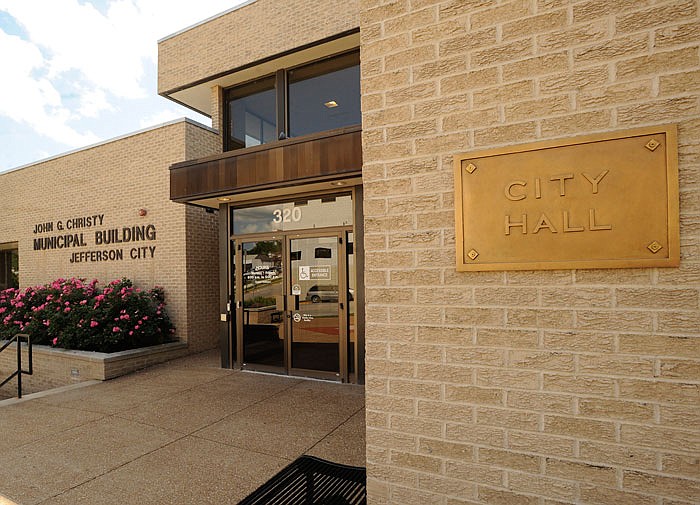Infrastructure improvements, code enforcement and community relations with Lincoln University are three of many items Jefferson City needs to improve upon as city officials look toward updating its Comprehensive Plan, the Jefferson City Planning and Zoning Commission said Thursday.
Taking a break from their typical meeting arrangement, commissioners broke into two small groups to discuss Jefferson City's strengths, weaknesses, opportunities and challenges.
These ideas will guide city staff as they work toward updating the 1996 Comprehensive Plan, which helps "city leaders, developers, business owners and citizens make decisions about how the community should be maintained, strengthened and developed" over the next 20 years, City Planner 1 Ahnna Nanoski said.
Aging infrastructure is a weakness the city must address in the coming years, commission chair Chris Jordan said. While the city does a good job of removing snow, he added, there are numerous potholes and failing sewer and stormwater pipes. The Ohio Street bridge in Washington Park has also been closed for several months due to deterioration, he noted.
"I think our roads around Jefferson City are the worst they have ever looked," he said. "I know things are more expensive, but I think we don't have roads that are up to par. They used to be, but we sat back so long that our underground facilities like sewer or stormwater - we have failing infrastructures. It's embarrassing."
One of the struggles of that, commissioners said, is finding the funding to go toward infrastructure improvements. The city allocates $1.2 million from the half-cent sales tax annually for the resurfacing program, which includes overlay and surface seal projects, city staff previously said.
The city is working toward improving the parks system though, Jordan said. Commissioners listed parks and the greenway as strengths and opportunities for the community.
Earlier this week, local officials broke ground at Community Park, which will soon have a sprayground, playground equipment, restrooms and more. The Jefferson City Parks and Recreation Commission is also working toward improvements at McClung and Ellis-Porter Riverside parks.
Lax code enforcement was another top discussion point among one of the breakout groups. While the community is focusing on improving the East Capitol Avenue area, commissioner Penny Quigg said, there are several areas around town experiencing similar code enforcement issues.
"I could get in a car right now and haul you all over town and show you 10 things wrong within 10 blocks of here," she said. "It's how we got the mess on (East) Capitol Avenue - poor code enforcement - and that happened 20 years ago."
Several commissioners said the city needs to strengthen its ordinances and code enforcement to deter irresponsible property owners.
Along with improving code enforcement, Lincoln University and the community also need to work toward a reciprocal relationship, commissioners said. While many commissioners said LU is a strength and an opportunity, it is also a weakness because the community does not take advantage of the local university.
"Somehow this city has to embrace that university," Jordan said. "I still think this community has to get involved with Lincoln University and Lincoln University has got to get involved in the community."
Enhancing the community-university relationship could attract more people to the Capital City and encourage them to stay, commissioners said.
City staff plan to host similar workshop sessions for community members on June 18, July 30 and Aug. 29.
Since planning impacts residents' and visitors' quality of life, Nanoski said, it's important the Comprehensive Plan represents the community.
"If people don't share what they want, what they think is good, what they think needs to be improved in the community, it can't be put down on paper," she said. "So, just having an overarching vision for the community is very important for our success."
City staff hope to draft a comprehensive plan between November 2019 and March 2020 and seek more public input in the spring and fall of 2020. They anticipate the final comprehensive plan will be complete by November 2020.

